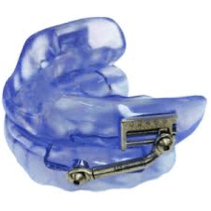Visit Our Office 77 Rolling Oaks Dr., Thousand Oaks, CA 91361(805) 379-5262
How to Stop Snoring
By: Talia Ahoubim
Do You Receive Complaints About Your Snoring?
 Snoring is a condition that is all-too prevalent, as it can affect anyone, whether it be our own family members, our friends, or even us. Most everyone snores now and then, however, for certain individuals, snoring could be part of a significant chronic problem.
Snoring is a condition that is all-too prevalent, as it can affect anyone, whether it be our own family members, our friends, or even us. Most everyone snores now and then, however, for certain individuals, snoring could be part of a significant chronic problem.
Snoring is more common in men who are overweight, and the chances of one snoring becomes higher as he or she ages.
Unfortunately, many individuals who snore oftentimes do not realize that they do. Assume that you are someone who loudly and frequently snores and has even received complaints that you do so. While you are sound asleep, you are potentially disrupting the sleep patterns of your loved ones.
Significantly, you may even be impairing your personal sleep quality without being cognizant that you are doing so.
Why Am I Snoring?
There are several factors that can cause snoring, and these include and are not limited to the following:
- Blocked Nasal Airways
There are circumstances, such as illnesses and allergies, which cause one’s nasal airways to be obstructed. Additionally, a deviated septum, in which the nasal septum is off-centered, can lead to an imbalance in the size of one’s breathing passage, thus causing difficulty with breathing. - Smoking and Alcohol Consumption
These irritate the membranes in the nose and/or throat, and as a result, those who smoke and drink more frequently are at a higher risk for snoring, since smoking blocks one’s airways, thus restricting airflow. - Sleep Deprivation
Not getting an adequate amount of sleep each night can further lead to tightness in the throat, which can contribute to snoring. - Sleep Position
The position you sleep in does contribute to snoring as well. For example, according to MayoClinic, sleeping on your back leads to the loudest and most frequent snoring. - Family History
It is important to be cognizant of your family history, such as whether someone in your family has a history of snoring or obstructive sleep apnea. After-all, heredity is a potential risk factor for this sleep disorder.
What Are the Symptoms Associated With Snoring?
While the bothersome sounds associated with snoring may go away once you are awake, there are certain symptoms that may follow you during the day.
Many individuals choose to ignore these symptoms, even if these symptoms represent an even bigger complication, such as sleep apnea. The following below are notable symptoms that you should pay attention to:
- Frequent irritability
- Daytime sleepiness and a lack of energy throughout the day
- Difficulty staying awake while doing certain tasks, such as reading
- Problems with concentrating
- Gasping for air in the middle of the night
- Morning headaches
What Are My Treatment Options?
Depending on the severity of your condition, there are measures you can take toward minimizing your snoring, such as limiting your alcohol consumption, losing weight, sleeping on your side, and getting more sleep. However, if the symptoms mentioned above apply to you, it is important that you seek help from a health care provider.
 These symptoms may indicate that your snoring is due to obstructive sleep apnea.
These symptoms may indicate that your snoring is due to obstructive sleep apnea.
One of Dr. Sharon’s specialities, is combating sleep apnea, and he does so by conducting a sleep test and then having our lab create a personalized and unique sleep appliance for each patient.
For many of our patients, this device has become a nighttime essential for them, as many of them have reported less snoring, no more headaches, and an overall increased satisfaction among those sleeping next to them.
Contact Dr. Sharon and schedule a consultation and let us help you get the sleep you deserve.



